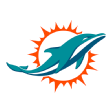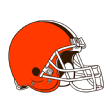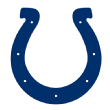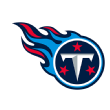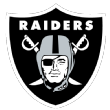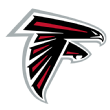The best and worst recent NFL free-agent signings for all 32 teams: Picking deals since 2015

With 2020 NFL free agency getting underway next week, many teams will be looking for the veteran impact players to put their franchise over the top, or to contribute to culture change. But it doesn't always work like that. While many free agents have a positive impact upon signing with their new teams, a lot of others bring their new employers regret.
We're looking at both sides here, as the NFL Nation writers picked out the best and worst free-agent signings of the past five years for the teams they cover. So enjoy the trip down memory lane, or express some buyer's remorse before free agency begins anew again.
Jump to:
ARI | ATL | BAL | BUF | CAR | CHI | CIN
CLE | DAL | DEN | DET | GB | HOU | IND
JAX | KC | LV | LAC | LAR | MIA | MIN
NE | NO | NYG | NYJ | PHI | PIT | SF
SEA | TB | TEN | WSH
AFC East
Buffalo Bills
Best free-agent signing: S Jordan Poyer. You also could make an argument for fellow safetyMicah Hyde, but the production Buffalo has gotten from Poyer far exceeds the bargain contract he signed in 2017 (four years, $12.5 million). Together with Hyde, Poyer has changed the identity of the Bills' defense.
Worst free-agent signing: DT Star Lotulelei. Both general manager Brandon Beane and head coach Sean McDermott will insist Lotulelei is more valuable than he gets credit for -- and they're probably right. But they also essentially admitted their error in giving him a five-year, $50 million contract in 2018 by restructuring his deal this offseason. Lotulelei is a space-eater who makes life easier for his teammates, but that alone is probably not worth $10 million per year. -- Marcel Louis-Jacques
Miami Dolphins
Best free-agent signing: QB Ryan Fitzpatrick. There haven't been a lot of great recent Dolphins free-agent signings, but Fitzpatrick was definitely a success after signing a two-year, $11 million deal plus incentives in March 2019. With arguably the NFL's worst offensive supporting cast, Fitzpatrick turned in the eighth-best QBR while bringing energy and helping the Dolphins evolve from a laughingstock to a well-respected team that won five of its last nine games, including a Week 17 win at New England.
Worst free-agent signing: DT Ndamukong Suh. This was an easy pick, as Suh signed what was the largest contract in NFL history in 2015 -- six years, $114 million with $60 million guaranteed. He lasted just three years before being cut in March 2018, with then-coach Adam Gase citing a need for a culture change. What made this deal so bad wasn't Suh's play, but that it was a predictable failure coupled with the large amount of dead money ($9.1 million in 2018, $13.1 million in 2019) that won't fully be off the Dolphins' books until the 2020 league year. -- Cameron Wolfe
New England Patriots
Best free-agent signing: DT Lawrence Guy. When the Patriots signed him to a four-year, $20 million deal in 2017, many were asking, "Who is this guy?" Guy was well-traveled, playing for the Packers, Colts, Chargers and Ravens, and the contract was the richest he'd been offered since entering the NFL as a seventh-round pick in 2011. Guy has since become a rock in the middle of the Patriots' defense, winning a Super Bowl ring and being referred to by veteran Michael Bennett as an overlooked player worthy of a raise.
Worst free-agent signing: WR Antonio Brown. One game. A $9 million signing bonus. Countless distractions. A messy release shortly after. As one person later explained, "We learned our lesson the hard way with him." -- Mike Reiss
New York Jets
Best free-agent signing: LG James Carpenter. This isn't a sexy choice, but let's be frank: The Jets haven't been good at free agency. They signed him in 2015 for four years, $19 million, and he wound up making every penny on the contract -- a rarity in the NFL. He started 58 straight games until a shoulder injury put him on the shelf in 2018.
Worst free-agent signing: CB Trumaine Johnson. Arguably their worst signing ever. Desperate for a corner in 2018, the Jets gave him a five-year, $72.5 million contract that included $34 million guaranteed at signing. What a waste. He has missed 15 games, mainly due to injuries, but he also has been benched twice, once because of a team violation. Final bill for Johnson, who soon will be released: $2 million per game. -- Rich Cimini
AFC North
Baltimore Ravens
Best free-agent signing: RB Mark Ingram II. There was a lot of fretting from the fan base when Baltimore signed Ingram instead of Le'Veon Bell. But Ingram became an integral cog and leader for the NFL's highest-scoring offense, leading the way with his physical and explosive running. After signing a modest three-year, $15 million deal, he ran for 1,018 yards, tied a franchise single-season record with 15 total touchdowns and coined the team's mantra "Big Truss." Not bad for someone who wasn't among the 10 highest-paid running backs last season.
Worst free-agent signing: SS Tony Jefferson. The Ravens envisioned getting a young playmaker who was on the verge of hitting his prime when they signed Jefferson to one of the richest deals they've ever given to another team's free agent. Three years later, Baltimore cut Jefferson after he totaled a disappointing two interceptions, two forced fumbles and 11 passes defensed in 35 games. Jefferson was a hard worker and strong leader in the locker room. He just didn't come close to meeting the investment of $19 million guaranteed. -- Jamison Hensley
Cincinnati Bengals
Best free-agent signing: LG Clint Boling. In 2015, the Bengals gave the offensive lineman a five-year, $26 million deal, the most total money given by the Bengals to any free agent during that span. It turned out to be a great investment. Boling started 62 of the next 64 games and retired before the 2019 season, the final year of his deal.
Worst free-agent signing: LB Preston Brown. The hometown linebacker was cut in the middle of 2019 after he signed a three-year contract worth $16.5 million. All of Cincinnati's struggles can't be pinned on Brown, but the defense made significant strides after his departure. Brown was picked up by Oakland and played one game before the Raiders cut him. -- Ben Baby
Cleveland Browns
Best free-agent signing: C JC Tretter. A case could be made for Kevin Zeitler, the other offensive lineman the Browns signed in 2017. But because they then flipped Zeitler for DE Olivier Vernon, who made little impact this past season, Tretter gets the nod. The Browns locked up one of the most underrated centers in the league with a three-year, $32.5 million extension midway through last season.
Worst free-agent signing: WR Kenny Britt. In 2017, the Browns also signed Britt to a four-year, $32.5 million deal, with $10.5 million guaranteed. Britt, however, lasted only nine games before being released, totaling 18 catches and 233 yards. -- Jake Trotter
Pittsburgh Steelers
Best free-agent signing: CB Joe Haden. The Steelers aren't known for splashy free-agent acquisitions, but this one has helped in a big way. Signing with the Steelers in 2017, the corner found new life after a seven-year career in Cleveland. Last year, he put together a Pro Bowl season with one forced fumble and five interceptions. He's a leader in the locker room and in the position group meetings. Prior to the 2019 season, the Steelers extended Haden, locking him up with a two-year, $22 million extension that included a $16.8 million signing bonus to keep him with the team through 2021.
Worst free-agent signing: TE Ladarius Green. The Steelers are better known for their free-agency busts, and with a four-year, $20 million contract and just six games, 18 catches, 304 yards and a touchdown to show for it, Green edges out the likes of wide receiver Donte Moncrief and running back LeGarrette Blount. Green was signed in 2016 to replace the retired Heath Miller, but injuries and concussion history kept him from truly making an impact. He earned $6 million of his contract by the time he was cut in May 2017 and cost the Steelers $3.5 million in dead money. -- Brooke Pryor
AFC South
Houston Texans
Best free-agent signing: S Tyrann Mathieu. Although Mathieu was in Houston for only one season, he quickly became a leader in the Texans' locker room. In 2018, Mathieu had two interceptions, three sacks and a fumble recovery. The Texans wanted to keep the safety long term but were outbid by the Chiefs in free agency. Mathieu had a similar impact in Kansas City in his first season with the Chiefs, with whom he won the Super Bowl and was voted the team's most valuable player.
Worst free-agent signing: QB Brock Osweiler. The quarterback lasted only one season in Houston after signing a four-year, $72 million contract in 2016. That year, he threw 15 touchdowns and 16 interceptions. He also was benched during a game late in the season and lost the starting job to backup Tom Savage, only to regain the role after Savage got hurt. Houston got rid of Osweiler's contract in 2017 by attaching a second-round pick to him in a trade with the Browns. -- Sarah Barshop
Indianapolis Colts
Best free-agent signing: TE Eric Ebron. Ebron's stay with the Colts lasted only two seasons, but his first season in 2018 led to a Pro Bowl appearance. Ebron's 14 total touchdowns led all tight ends in the NFL and his 13 receiving touchdowns set a Colts single-season record for tight ends. He finished that season with 66 receptions for 750 yards to go with those 14 TDs.
Worst free-agent signing: OL Todd Herremans. Herremans, who started at every position along the offensive line other than center at some point in his career, was supposed to help shore up some leakiness up front for the Colts in 2015. Instead, he lost his starting job after just two games. He ended up being a healthy inactive for five games, and his only snaps after that came on special teams before the Colts released him in the middle of December. Ryan Grigson, the Colts' general manager at the time, admitted that signing Herremans was a bad decision on his part -- Mike Wells
Jacksonville Jaguars
Best free-agent signing: DE Calais Campbell. He'll go down as the best free-agent signing in franchise history after signing a four-year, $60 million contract with $30 million guaranteed in 2017 and recording 31.5 sacks in the first three seasons of that deal. He has made the Pro Bowl in each of those three seasons in Jacksonville and was a first-team All-Pro and candidate for Defensive Player of the Year after recording a career-high 14.5 sacks in 2017. Though he has played just 48 games, he is already fourth in franchise history in sacks.
Worst free-agent signing: QB Nick Foles. The Jaguars signed him to a four-year, $91 million contract with a franchise-record $50.125 million guaranteed. He had never started a full 16 games in a season and continued that trend last year. He broke his collarbone after 11 offensive snaps and played poorly when he returned (he got benched after three turnovers and three three-and-outs in the first half of his third game back). Coach Doug Marrone said Foles and Gardner Minshew II, who won six games and was the highest-rated rookie QB last season, will compete to be the starter. So the Jaguars could potentially have a backup QB with an average annual salary of $22 million. -- Mike DiRocco
Tennessee Titans
Best free-agent signing: OLB Brian Orakpo. After Orakpo came to the Titans in 2015 on a four-year, $31 million contract, he immediately became one of their top pass-rushers, finishing with 25.5 sacks over four seasons. Orakpo's 10.5-sack season in 2016 helped the Titans' defense get off to a great start under new coordinator Dick LeBeau. His double-digit sack total was the only one by a Titans player over the past five seasons. Orakpo's leadership was also key during his time with the Titans.
Worst free-agent signing: DT Sylvester Williams. The veteran signed a three-year, $16.5 million contract in 2017. Williams started 11 games for the Titans, along with two playoff games. He finished with one sack that season, which came in their divisional-round playoff loss to the Patriots. He was released one year later. -- Turron Davenport
AFC West
Denver Broncos
Best free-agent signing: S Darian Stewart. Stewart was the final piece of the no-fly zone secondary that powered the No. 1 pass defense in 2015 for a team that went on to win Super Bowl 50. Stewart signed a two-year, $4.25 million deal that year and started 29 games the next two seasons, serving as an injury replacement in the Pro Bowl in 2016. The Broncos then re-signed Stewart to a four-year extension after 2016, but released him after the 2018 season. In all, Stewart started 58 games in his four seasons in Denver and provided great free-agent value.
Worst free-agent signing: T Menelik Watson. Watson's body betrayed him as the Broncos lost a hefty financial bet when he signed a three-year, $18.375 million deal in 2017. Watson had never played more than 12 games in a season in his previous four years in the league and missed the entire 2015 season. He played just seven games due to injuries in 2017. Watson was moved from tackle to guard in 2018 but could not beat out Connor McGovern and was released before the season began. The Broncos took dead money hits of $6.83 million in 2018 after Watson's release to go with another $1.3 million hit in 2019. -- Jeff Legwold
Kansas City Chiefs
Best free-agent signing: OT Mitchell Schwartz. Tyrann Mathieu is another strong candidate, but Schwartz has been playing a strong right tackle since he signed in 2016. One reason the Chiefs have won four straight AFC West championships is that Schwartz has effectively neutralized some of the division's top pass-rushers, including Von Miller, Melvin Ingram III and for a time, Khalil Mack.
Worst free-agent signing: LB Anthony Hitchens. He hasn't had the impact the Chiefs hoped when they signed him in 2018. He was enough of a liability in pass coverage that he played in less than a third of third-down snaps last season. -- Adam Teicher
Las Vegas Raiders
Best free-agent signing: C Rodney Hudson. All Hudson has done since coming to the Raiders from the rival Chiefs on a five-year, $44.5 million contract in 2015 is make three Pro Bowls and win the past three Commitment to Excellence Awards, as voted upon by teammates. In fact, Hudson did not allow a sack in 527 pass-blocking snaps last year and led all offensive linemen with a 99.7 pass-blocking efficiency rating, per Pro Football Focus data. Oh, and he signed a three-year, $33.4 million extension last offseason, with $24.4 million guaranteed, that made him the highest-paid center in the league in terms of average annual pay per season. He's a keeper.
Worst free-agent signing: CB Sean Smith. Much was made about Smith solidifying the secondary when he signed a four-year, $40 million contract, with $20 million guaranteed, in 2016 after spending the previous three years with the Chiefs. Alas, Smith was benched in his first game after getting torched repeatedly. A big corner at 6-foot-2, 215 pounds, Smith did start 15 games in 2016, then appeared in another 14 games, with eight starts, in 2017. He had four interceptions for the Raiders in two seasons, but legal issues and jail time curtailed his career and he has not played in the NFL since. -- Paul Gutierrez
Los Angeles Chargers
Best free-agent signing: CB Casey Hayward Jr. The Chargers signed the Vanderbilt product to a three-year, $15.3 million deal in March 2016, and he quickly developed into one of the best cornerbacks in the NFL. Hayward tied for the league lead with 11 combined interceptions in the 2016 and 2017 seasons. Because of that production, along with impact as a leader in the locker room, the Chargers re-signed Hayward to a three-year, $34.25 million contract extension that included $20 million guaranteed in 2018.
Worst free-agent signing: WR Jacoby Jones. The Bolts signed Jones in March 2015 to a two-year, $5.5 million deal to improve the team's return game. However, Jones struggled and was released midway through his first season in San Diego. Jones suffered a high ankle sprain in the season opener that forced him to miss three games. Upon his return, he managed a miserable minus-4 punt return yards and averaged just 21.4 yards per kick return in five games. -- Eric D. Williams
NFC East
Dallas Cowboys
Best free-agent signing: WR Randall Cobb. He caught 55 passes for 828 yards and three touchdowns on a one-year deal that paid him about $5 million in 2019. The Cowboys have not made big splashes in unrestricted free agency in recent years by design. Backup offensive lineman Joe Looney might be their second-best signing, which is an indication of how they have shopped in the open market.
Worst free-agent signing: DE Greg Hardy. It wasn't that Hardy played poorly or that he cost a lot. He had six sacks in 12 games in 2015, and his deal had no guaranteed money. The signing went against the right-kind-of-guy mantra Jason Garrett was trying to have in the locker room. Hardy was suspended for the first four games of the season (reduced from 10 games on appeal) for violating the league's personal conduct policy in an alleged incident involving a former girlfriend. He was not a hard worker and had a negative influence on younger players around him. -- Todd Archer
New York Giants
Best free-agent signing: OLB Markus Golden. He gets the honor after recording 10.0 sacks in a prove-it year in 2019. To date, it's his only season with the Giants. Janoris Jenkins, Damon Harrison and Olivier Vernon (the vaunted 2016 free-agent class) all had their moments, but it fell apart for each at the end.
Worst free-agent signing: OL Patrick Omameh. Lots of competition here. The J.T. Thomas signing in 2015 certainly warranted consideration, but the Omameh signing was just a clear misevaluation. It didn't have anything to do with injury or luck. The Giants signed Omameh to a three-year, $15 million deal to be their starting guard. He lasted seven games before being released and paid $5.5 million. Just a bad signing. -- Jordan Raanan
Philadelphia Eagles
Best free-agent signing: G Brandon Brooks. The Eagles signed Brooks to a five-year, $40 million deal in March 2016. He has developed into arguably the best right guard in the game, earning Pro Bowl bids in each of the past three years, and is a locker room favorite. The pairing has worked out so well that the Eagles made Brooks the highest-paid guard in the NFL by signing him to a four-year, $54 million extension in November.
Worst free-agent signing: CB Byron Maxwell. Former coach Chip Kelly made a number of regrettable moves when he took over personnel control in 2015, including signing Maxwell to a six-year, $63 million contract in free agency. It was a bad fit, and he never came close to level of play he reached previously while with the Seahawks. Maxwell lasted just one year. After firing Kelly, the Eagles traded Maxwell and Kiko Alonso to the Dolphins. -- Tim McManus
Washington Redskins
Best free-agent signing: TE Vernon Davis. He signed a one-year deal worth $2.4 million in 2016 and responded with a bounce-back year: 44 catches for 583 yards and two touchdowns. He averaged 13.3 yards per catch -- fifth among all tight ends. With fellow tight end Jordan Reed missing four games due to injuries, Davis' production helped the Redskins rank second in passing yards per game. That earned him another three-year deal. Safety Landon Collins was exactly who the Redskins hoped he would be last season as a player and a leader, but Davis' production for the cost is tough to top.
Worst free-agent signing: CB Chris Culliver. There was plenty of competition for this spot because of the Redskins' free-agency failures, but Culliver gets the nod because of his contract (four years, $32 million) and length of service (six games). The Redskins signed him in 2015 to become their No. 1 corner. However, he was suspended one game for violating the NFL's personal conduct policy, then he tore his ACL and was released before the following season. -- John Keim
NFC North
Chicago Bears
Best free-agent signing: WR Allen Robinson II. He already outperformed the three-year, $42 million deal he signed with Chicago. Robinson led the Bears with 98 catches for 1,147 yards and seven touchdowns last year -- quite an accomplishment on a team that ranked 29th in total offense and 25th in passing offense. Robinson also posted decent numbers in 2018 (55-754-4) while still recovering from the nasty knee injury he suffered in Jacksonville. Robinson seems a logical candidate to receive an extension from the Bears in the near future.
Worst free-agent signing: QB Mike Glennon. Yikes. The Bears paid Glennon $18.5 million for four starts in 2017. Chicago intended for Glennon to start the entire year so the club could groom second overall pick Mitchell Trubisky. The plan completely backfired. Everyone lost, except Glennon, who walked away with a small fortune courtesy of the Bears. -- Jeff Dickerson
Detroit Lions
Best free-agent signing: WR Marvin Jones Jr. In the days after wide receiver Calvin Johnson's retirement, the Lions signed Jones to a five-year, $40 million deal that has worked out in every way. Jones has 213 catches for 3,318 yards and 27 touchdowns in his first four seasons with the Lions and fit well alongside both Golden Tate and Kenny Golladay, becoming one of the better contested-ball receivers in the NFL. Jones has dealt with injuries -- he landed on injured reserve in 2018 and 2019 -- but enters 2020 with the possibility of his second 1,000-yard season.
Worst free-agent signing: TE Jesse James. James signed a four-year, $22.6 million deal last offseason and was almost immediately usurped by first-round pick T.J. Hockenson. James finished his first year in Detroit with 16 catches for 142 yards -- his lowest totals since his rookie season -- and had fewer targets (27) than he had receptions in any of his previous three years in Pittsburgh (39, 43, 30). He also was held without a touchdown in a season for the first time in his career. While he still has time to improve, this signing looks worse every time James doesn't see many targets. -- Michael Rothstein
Green Bay Packers
Best free-agent signing: OLB Za'Darius Smith. It's not just what Smith did on the field in 2019 after he signed a four-year, $66 million deal -- although he was often unblockable -- but also the vibe and leadership he brought to the Packers' locker room. His outgoing, energetic approach became contagious and galvanized the team on the way to the NFC title game.
Worst free-agent signing: TE Martellus Bennett. The veteran tight end signed a three-year, $21 million contract and played only seven games before he forced his way out of Green Bay in a manner that became so contentious the Packers tried (unsuccessfully) to recoup the $6.3 million signing bonus they gave him in 2017. The Bennett failure then led to another shot at a veteran tight end, Jimmy Graham, which worked out slightly better but ultimately will go down as a bad signing. -- Rob Demovsky
Minnesota Vikings
Best free-agent signing: CB Terence Newman. Few players know the ins and outs of Mike Zimmer's defense better than Newman, who followed the Vikings' head coach from Dallas to Cincinnati before signing with Minnesota as a free agent in March 2015. Newman spent his first two seasons as an outside corner before moving inside, where he gave the Vikings stability at the nickel position. Newman's impact on the defense cannot be overstated. In addition to performing at a high level as he neared 40 years old, the cornerback took younger players such asMackensie Alexander and Holton Hill under his wing and helped groom them.
Worst free-agent signing: DT Datone Jones. Rightfully concerned about the health of former first-round pick Sharrif Floyd, the Vikings signed Jones to a one-year, $3.75 million deal in March 2017. A former first-rounder himself, Jones was released by Green Bay at the end of the 2016 season after failing to live up to his draft expectations. Minnesota expected Jones would become a rotational pass-rusher, but it wasn't the right fit. Jones was cut a few days before the regular season. -- Courtney Cronin
NFC South
Atlanta Falcons
Best free-agent signing: C Alex Mack. The former Cleveland Brown brought immediate stability to the offensive line and played a big role in helping the Falcons to Super Bowl LI. Mack's intelligence and ability to block into the second level helped establish him as the anchor of the line.
Worst free-agent signing: G Jamon Brown. He was signed to a three-year, $18.75 million deal ($12.75 guaranteed) to help bolster the line. Instead, Brown was benched after starting nine games last season, and the Falcons are looking for guard help again. -- Vaughn McClure
Carolina Panthers
Best free-agent signing: DE Julius Peppers. You can argue there have been more productive free-agent signings, but none were more meaningful than bringing back the second pick of the 2002 draft for a bargain one-year, $3.5 million deal in 2017. Peppers was born and raised in North Carolina, and his departure after the 2009 season over money wasn't popular with fans. His return meant more for goodwill than his 11 sacks in '17. The future Hall of Famer retired after the 2018 season and is now an ambassador for the team.
Worst free-agent signing: LT Matt Kalil. This one was easy. He was signed as a free agent to a five-year, $55 million deal in 2017 to anchor the left side of the line. He played all 16 games that season and was average at best. He missed the 2018 season with a knee injury and was released in 2019, leaving the team responsible for about $15 million in dead money. -- David Newton
New Orleans Saints
Best free-agent signing: LB Demario Davis. Possibly the Saints' best free-agent signing since Drew Brees, Davis has brought great value both on and off the field since the Saints stole him with a three-year, $24 million deal in 2018. A bit of a late bloomer, he was named a first-team All-Pro for the first time this past season at age 30. He has brought much-needed athleticism and playmaking ability to New Orleans as an every-down player with 221 tackles, 9 sacks, 20 QB hits, 22 tackles for loss, an interception and 16 passes defensed over the past two seasons.
Worst free-agent signing: CB Brandon Browner. The Saints cut Browner just one year into his three-year, $15 million deal after an ugly 2015 season. The big, physical veteran was flagged for 24 penalties (21 accepted), the most by any player in a single season since at least 2001. Worse yet, the Saints' pass defense shattered NFL records for most TD passes allowed and highest opponents' passer rating. By the end of the season, he was being booed by the home crowd during pregame introductions. -- Mike Triplett
Tampa Bay Buccaneers
Best free-agent signing: OLB Shaquil Barrett. For one year and $4 million (plus incentives), the Bucs landed the league's 2019 sack leader. Barrett's 19.5-sack season marked just the second time since 2005 that the Bucs had a player reach double-digit sacks.
Worst free-agent signing: DT Chris Baker. He signed a three-year deal worth $15.75 million in 2017 but was gone after one season. While Baker provided comedic relief on HBO's "Hard Knocks," players and coaches became increasingly frustrated by his perceived lack of effort. The breaking point came when he was smiling after an encroachment penalty that cost the Bucs a win against the Panthers, resulting in a shouting match with several players in the locker room. -- Jenna Laine
NFC West
Arizona Cardinals
Best free-agent signing: C A.Q. Shipley. He might fly under the radar, as most centers do, but Shipley has been the constant on the Cardinals' offensive line since he signed with the team in March 2015, with the exception of missing the 2018 season due to an ACL injury. Other than that, Shipley has played in 56 games. When he's healthy, he's reliable and has been able to develop an intimate command of all three of the offenses the Cardinals have run during his tenure. He wasn't a splash signing, but he has been a home run.
Worst free-agent signing: QB Sam Bradford. This wasn't as easy of an answer as some might think because Bradford had stiff competition. He beat out tackle Andre Smith, guard Evan Mathis and linebacker LaMarr Woodley as the Cardinals' worst free-agent signing of the past five years. Arizona gave Bradford what could've been a two-year deal had he played well and ended up paying him a little more than $15 million to play in three games in 2018. Bradford was coming off a knee injury in Minnesota and didn't look anything like the quarterback he once was. -- Josh Weinfuss
Los Angeles Rams
Best free-agent signing: LT Andrew Whitworth. The Rams have been especially active in free agency over the past three seasons, and there's an argument that receiverRobert Woods -- who has produced back-to-back 1,000-yard seasons -- has been the best signee. However, after playing 11 seasons with the Bengals, Whitworth signed a three-year, $36 million deal, then quickly proved he had plenty remaining in the tank. He immediately stabilized the offensive line, which was key in the Rams' winning consecutive division titles following his arrival. He also played a crucial role in reshaping the locker room culture.
Worst free-agent signing: CB Kayvon Webster. The Rams signed Webster to a two-year, $8 million contract in 2017. Webster performed well when healthy but dealt with a shoulder injury, then a torn Achilles that limited him to 11 games. The Rams released Webster after he failed an offseason physical, which saved them $3.55 million in salary-cap space. -- Lindsey Thiry
San Francisco 49ers
Best free-agent signing: CB Richard Sherman. A torn Achilles suffered in 2017 left some wondering if Sherman's best football was behind him. Both Sherman and the Niners didn't think that was the case, as he signed a three-year deal worth up to $39 million in 2018. Sherman was solid in his first season back from the injury in 2018, then was a second-team All Pro in 2019, posting 61 tackles and three interceptions, along with two more picks in the postseason. All of that while serving as the ideal veteran leader for a young team that broke through to become NFC champions last season. Fullback Kyle Juszczyk also deserves mention here.
Worst free-agent signing: LB Malcolm Smith. One of the first signings of the John Lynch and Kyle Shanahan era, Smith signed a five-year, $26.5 million deal with the Niners in 2017. While Smith had familiarity with coordinator Robert Saleh's defense, his time with the 49ers was marked by injury. He missed the entire 2017 season with a torn pectoral and started just five games in 2018 before he was released in 2019. He made 35 tackles in 12 games over two seasons with the team, leaving San Francisco to continue investing serious resources at linebacker. -- Nick Wagoner
Seattle Seahawks
Best free-agent signing: S Bradley McDougald. Since signing with the Seahawks in 2017, McDougald ranks third among Seattle defenders in both snaps (2,381) and tackles (215) while tying for the lead in interceptions (five) -- despite spending half of his first season backing up Earl Thomas III and Kam Chancellor. McDougald could be the odd man out in 2020 if the Seahawks feel Marquise Blair is ready to join Quandre Diggs in the starting lineup, but they've gotten excellent bang for their buck over his three years in Seattle, paying him an average of under $3.75 million per year.
Worst free-agent signing: CB Cary Williams. The Seahawks whiffed on Eddie Lacy in 2017, but that wasn't as expensive as their whiff on Williams, who didn't even make it through the first season of the three-year, $18 million deal he signed in 2015. Williams made $7 million for what turned out to be 10 uneven starts. He lost his starting job in November, then got cut two weeks later even though it would have cost the Seahawks just as much in cash and cap space had they kept him on their roster for the remainder of the season. -- Brady Henderson
Related Video
Related Topics
- SPORTS
- ESPN
- CINCINNATI BENGALS
- NEW ORLEANS-SAINTS
- ATLANTA FALCONS
- 2020 NFL-SEASON
- HOUSTON TEXANS
- NFL FREE-AGENCY
- BALTIMORE RAVENS
- PHILADELPHIA EAGLES
- LAS VEGAS-RAIDERS
- INDIANAPOLIS COLTS
- WASHINGTON REDSKINS
- TENNESSEE TITANS
- JACKSONVILLE JAGUARS
- CAROLINA PANTHERS
- NEW YORK-JETS
- CHICAGO BEARS
- NEW ENGLAND-PATRIOTS
- SEATTLE SEAHAWKS
- DALLAS COWBOYS
- NEWS
- LOS ANGELES-CHARGERS
- ARIZONA CARDINALS
- MINNESOTA VIKINGS
- DETROIT LIONS
- 32 FOR-32
- 2020 NFL-FREE-AGENCY
- GREEN BAY-PACKERS
- LOS ANGELES-RAMS
- BUFFALO BILLS
- LIST
- SAN FRANCISCO-49ERS
- MIAMI DOLPHINS
- NFL
- TAMPA BAY-BUCCANEERS
- DENVER BRONCOS
- DAILY
- KANSAS CITY-CHIEFS
- CLEVELAND BROWNS
- NEW YORK-GIANTS
- PITTSBURGH STEELERS




